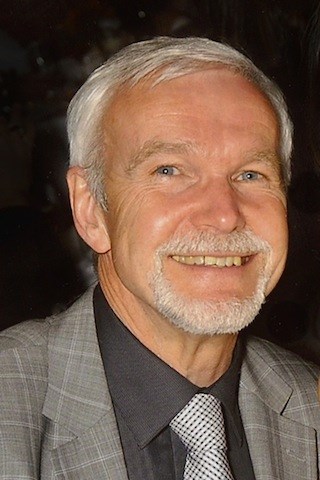aging director of national client group, Alberta, for RBC Royal Bank, has been busy, and his being busy offers some hope for the industry.
“We just closed syndication of an oilfield services company. I can’t give you the name because it’s private. But I am telling you things are still happening. This company is based on recurring revenue, and through the cycles they are able to maintain their revenue and profitability because they have a must-have offering. You can’t really do without it,” said Straathof.
“It’s a mixed bag. It’s not all bad.”
In recent years Straathof has been one of Pipeline News’ go-to people in the banking side of the industry. On Oct. 19, he spoke to us via telephone from Calgary.
“The general motto, whether you’re in services or E&P (exploration and production) is ‘lower-for-longer,’ unfortunately. It’s not a quick fix, as in 2009, when OPEC withdrew 4.5 million barrels of then-current production. Now they’re saying the other way, they want to maintain and grow market share.”
Straathof said, “We just came out with an updated forecast for oil; for 2016, an average of US$57 for WTI, and them moving up to US$65 for 2017. If you asked us six months ago, we were more saying we would be going to the mid-60s for next year. So it’s really lower-for-longer.
“What we’re talking about with clients is to make sure you’re relevant. Be relevant. If you’re oilfield services and you work with E&P companies, make sure that the services you offer are something they really want and need and can help them be more cost efficient. When you are half the price of what you were 12, 18 months ago, everybody is looking at how to make that work with much better efficiencies and cost reductions.”
As bankers, they don’t tell their clients to lay off staff. Straathof noted, “We see a lot of different things, different solutions. Companies that have always been lean, they have, maybe, looked at salary reduction across the board of maybe 10 per cent, and maybe higher for executives. But there’s also been layoffs. Companies that may have had robust FTE (full-time equivalent), there’s been several rounds of layoffs. There has been several solutions for E&P.
“Oilfield services are always affected because their clients are being dramatically affected by much lower oil prices. The other thing that’s happening of course is a number of E&P companies have hedges, and those hedges are starting to run off. If they had them, they will be running off, and they can’t get $100 oil anymore.
So it’s really starting to hurt them now. They’re getting a lot less cash flow, and the borrowing bases are lower.
“It’s not that banks are doing things differently; but when you do borrowing base, everybody knows the rules, right? It’s depending on your production and oil price. So when oil prices come down, there’s less available for the borrowing base,” he said.
They have not had companies in their clientele going out of business. But Straathof noted, “I should tell you about this phenomena: people having a tough time going into the lower oil price, whether it’s the smaller oilsands companies in a build-up phase, or some of the oilfield services companies, such as a one-product company that had issues around it, I would say people went into the downturn with some balance sheet issues, we’ve seen a number of those throwing in the towel, or being sold, or closing the doors. We’ve seen that.”
“We have been in this business for 70 years. We decided a number of years ago we wanted to be a long-term player. We don’t want to go through the cycles and do the up and down kind of thing. So we are a bit more conservative on the upside, so we can work with our clients and everyone can survive. Our clients can work their way through. We have a few clients that are working through the issues, but they’re not in disaster scenarios. With the prolonged lower oil prices, it’s tougher out there.”
Straathof has frequently talked about doing “stress tests” on companies’ finances.” Given the state of the industry, are the stresses so bad it’s time to get the defibrillator paddles?
“We stress test,” he replied. “We have a number of clients that are good because they didn’t have high debt levels coming in. I would say there are some that are going through a little more stress, but they have strong shareholders. They can work their way through with us.”
He noted that some oilfield services companies, according to the Petroleum Services Association of Canada, have more geographically diverse businesses outside of Canada. A 2014 survey among 40 oilfield services companies showed export revenues of approximately $42 billion for these companies alone.
“If you’re in the maintenance business, in the oilsands business, there’s still new production coming on from existing projects being completed. The maintenance business is still robust and there’s still work.”
In the prairies, during the good days, Straathof pointed out $75 billion a year were being spent on oilfield services. That’s down to around $40 billion now, but it’s still $40 billion, a large number. “There is still a level of business out there. It’s not totally dire straits. It’s still a robust industry. But there are more suppliers looking for that same work, so margins will come down. The better companies will get the work.”




